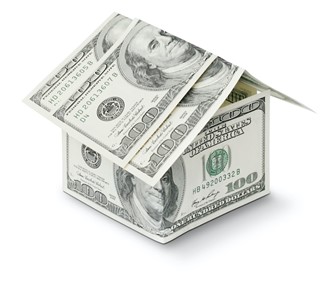Richard Tschernia is a mortgage loan officer and frequent contributor to local charities. In the following article, Richard Tschernia discusses tips for mastering the art of obtaining the perfect mortgage loan.
A home is generally the most expensive purchase in a person’s lifetime, and it’s not likely to have the cash for buying it outright. A mortgage allows people to finance a home, paying it off over the course of their life. However, the process of getting one can be a little daunting.
For a loan agreement that can last for as long as 30 years, it’s best to be armed with tips for securing the right one.
Richard Tschernia on Putting the Best Foot Forward
Before even shopping around for a lender there are a few things to do set the process up for success:
Calculate an Affordable Down Payment
Richard Tschernia explains that the usual advice is 20% of the home’s value as down payment, which means a smaller loan, smaller payments, and more protection. Despite its benefits, not everyone can afford a 20% down payment and it’s not uncommon to give less.
Combine savings, investment statements, and all liquid assets to see how much is available for upfront costs on the home. After that, put money aside for: an emergency fund (3 months of living expenses), upcoming expenses, and factor in
closing costs of finalizing a mortgage.
Richard Tschernia says that the amount that’s left will be the available funds for a down payment.
Get a Free Annual Credit Report
The first thing a lender will do is run a credit check, and would want to see a score of at least 640.
To achieve that, get a
free credit report
and fix any negative items (if possible) that are harming the credit score.
Richard Tschernia notes that while the credit report doesn’t contain the actual credit score, major credit card companies give the Fair Isaac Corporation (FICO) score for free, which is what’s used by companies that guarantee most of the U.S. mortgages.
After some preparation, it’s time to dive into loans.
Doing the Leg Work
There are different loan options, where the best fit depends on the circumstances of each borrower.
Loan Term: How Long To Repay
Richard Tschernia says that typical terms are 30 years, but often individuals opt for 15 or 20 year loans. If budget allows, it’s always better to go for shorter terms as it calculates to less interest paid over time. However, while a longer term means more money paid, the monthly payments are smaller which puts less strain on day-to-day finances.
Interest Rate Type: Fixed or Adjustable
With a fixed rate, the total monthly payments can still fluctuate (if property taxes or homeowner’s insurance changes) but the monthly principal and interest payments will not.
Richard Tschernia reports that a fixed rate has been historically chosen by 70%–75% of borrowers, though there is an argument for adjustable-rate mortgages (ARM). An ARM starts off with an interest that is lower than actual fixed rate mortgages, however after a certain period (normally 5 years) it can go up or down based on the market.
If moving to another home during the fixed period of the ARM is a possibility, then the future adjustments are irrelevant. If that is the case, then taking advantage of the low initial interest rates that ARMs sport is a savvy move.
 Loan Type: Conventional, FHA, or Other
Loan Type: Conventional, FHA, or Other
Richard Tschernia explains that a conventional loan is not part of a government program. They’re the most popular option for mortgages but have stricter standards for qualifying.
Federal Housing Administration (FHA) loans are FHA-insured loans from private lenders that allow for low down payments (as low as 3.5%) and has lower credit score requirements, though they end up costing more.
There are also other loans, with zero down payments, or for those with specific circumstances, like living in rural areas.
Window Shopping
Richard Tschernia also explains that once the loan options have been decided, it’s now time to shop around for lenders. Compare fees from several companies and take time to know the Annual Percentage Rate (APR).
The APR is a special number that shows the total “cost” of the loan, and it helps borrowers assess how much extra money is being charged for the loan. A high APR equates to more money that has to be paid back.
After deciding on a lender, getting preapproved can make the process of actually buying windows (and the rest of the house) a more seamless process.
 Loan Type: Conventional, FHA, or Other
Loan Type: Conventional, FHA, or Other